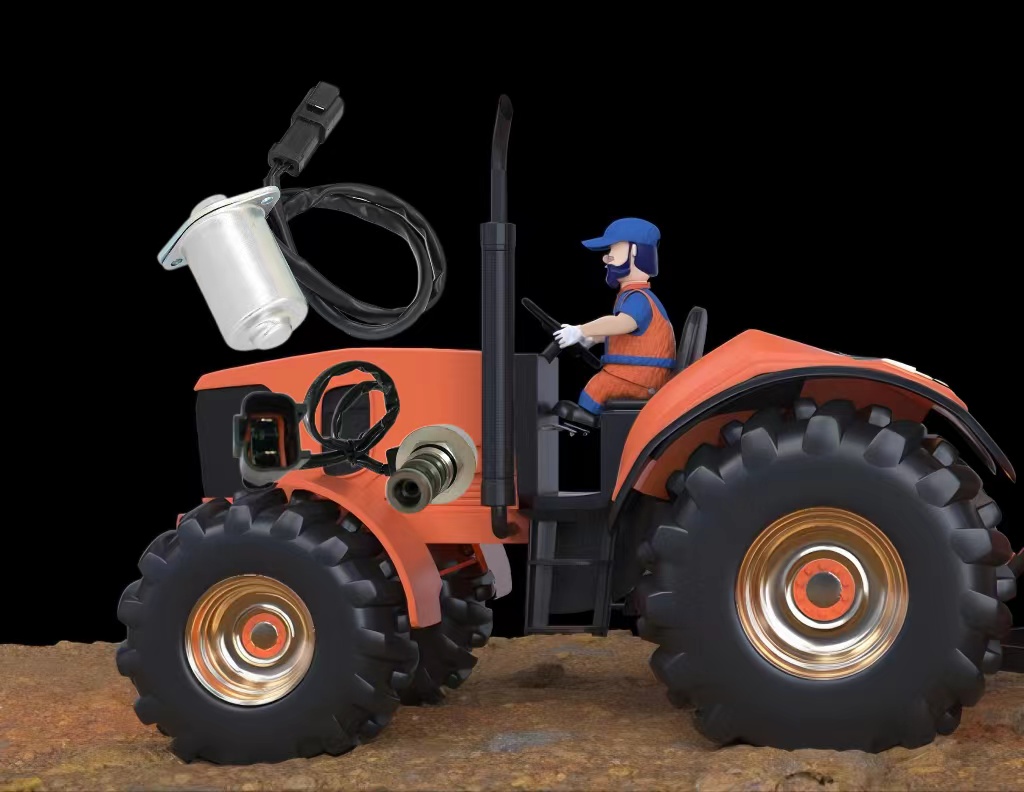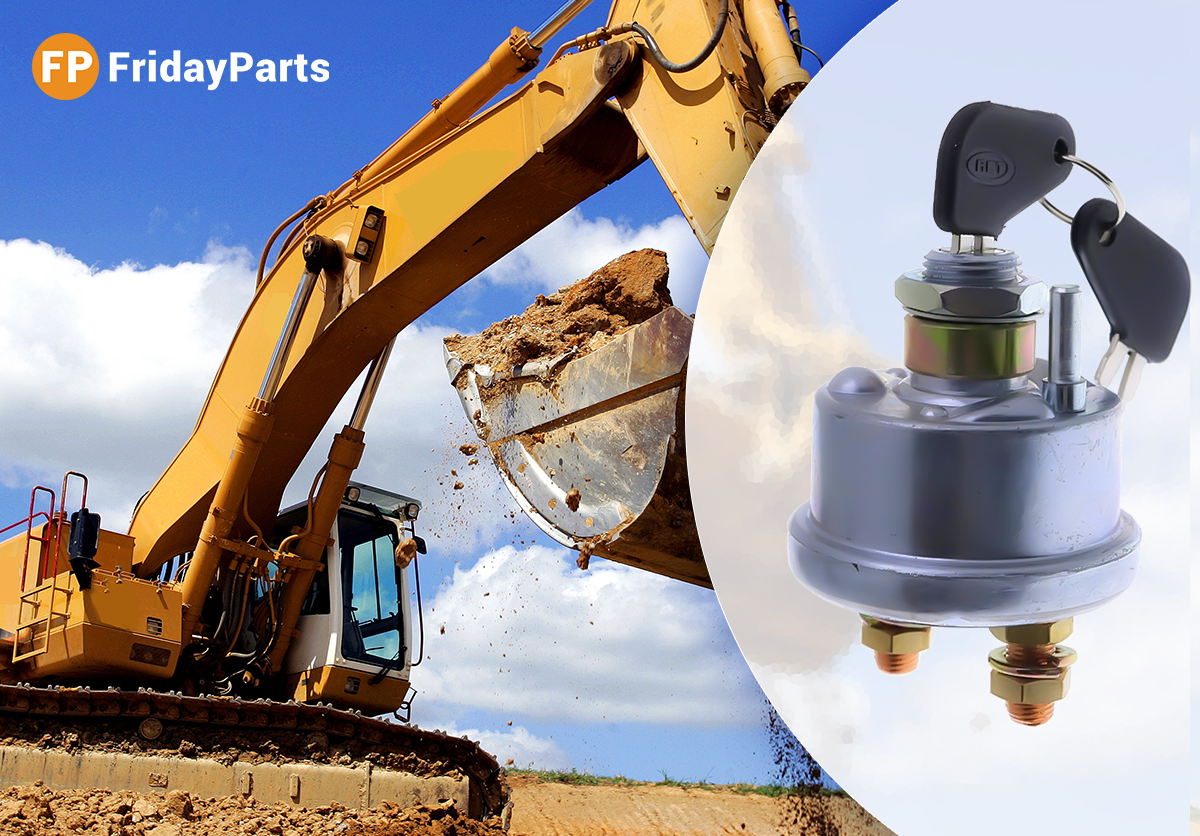As a key component of excavators, loaders, dozers, tractors, and generators, air conditioning systems, the a/c compressor is responsible for compressing and circulating the refrigerant gas in the system. Usually, it is driven by a belt connected to the crankshaft of the engine and is indirectly connected to the engine. The compressor is responsible for pressurizing and circulating the refrigerant in the A/C system, and if it fails, the entire system will be affected. In this blog post, we will discuss the symptoms of a bad A/C compressor in an excavator and why it is important to know them. By recognizing these symptoms early on, you can diagnose the problem and have it fixed before it causes further damage to your A/C system or affects the operation of the excavator. This can save you time, money, and prevent downtime in the long run.
What Are the Symptoms of a Faulty Air Conditioner Compressor?
The symptoms of a faulty air conditioner compressor for heavy machinery such as excavators, tractors, dozers, and loaders are similar. Some common symptoms include:
Warm or fluctuating air-conditioning temperatures
If the air conditioning system is no longer blowing cold air or the temperature is fluctuating, this could be a sign of a bad compressor.
Noises coming from the AC compressor
If you hear strange noises such as grinding, squealing, or rattling coming from the AC compressor, this could be another sign of a bad compressor.
Difficulty starting the AC
If the AC system has trouble starting, this could be another sign of a bad compressor.
Refrigerant leaks
If you see refrigerant leaks around the compressor, this could be another sign of a bad compressor.
If you notice any of these symptoms in your heavy machinery, it is important to have the A/C system checked by a professional to diagnose and fix the problem before it causes further damage.
Other A/C Compressor FAQ
What should I do if my air-conditioner is noisy?
If your air conditioner is making noise, there are several things you can do to fix the problem. Start by checking the unit’s casing for any loose screws or bolts and tighten them if necessary. Next, clean the condenser coils and fan blades to remove any accumulated dirt and debris that may be causing noise. You should also change the air filter to improve airflow and reduce noise. If these steps do not solve the problem, consider installing a sound blanket to absorb noise from the air conditioning unit. If the noise persists despite your efforts, contact an HVAC specialist to diagnose and fix the problem. Generally, when the ac compressor makes noise, it may need to be replaced with a new one.
How to replace a compressor?
Replacing an A/C compressor is a complex task that requires specialized knowledge and tools. Here are the general steps involved in replacing an A/C compressor:
- Disconnect the power: Before starting any work on the A/C system, make sure to disconnect the power to the unit to prevent accidental injury.
- Remove the old compressor: Remove the cover of the A/C unit to access the compressor. Disconnect any electrical connections and hoses, and carefully remove the old compressor from the unit.
- Install the new compressor: Install the new compressor in the same location as the old one, making sure to properly align it with the mounting holes. Reconnect any electrical connections and hoses.
- Fill the system with refrigerant: Once the new compressor is installed, fill the A/C system with the appropriate amount of refrigerant according to the manufacturer’s specifications.
It is highly recommended to have a professional replace the compressor to ensure that the job is done correctly and safely. However, if you’re interested in learning more about the process, you can watch instructional videos for inspiration. For example, John Deere tractor owners may find the video by YouTuber Mikep7810, sponsored by FridayParts, particularly helpful.
How much does a new air conditioning compressor cost?
Honestly, it can be expensive to replace a new a/c compressor, whose cost includes labor and a new a/c compressor. The cost of replacing a new air conditioner compressor depends on various factors, such as some small particles from the faulty compressor that can travel through the air conditioner system, which means that other air conditioner parts need to be replaced, and will also be affected by the make of the excavators/ loaders/ dozers/ generators, as well as the compressor needed type, etc. If you need to know the exact repair cost, it is recommended that you consult qualified technical repair personnel.
How many years should an a/c compressor last?
Typically, The lifespan of an A/C compressor varies depending on several factors, such as the type, quality, usage, climate, and maintenance of the A/C unit. If you want to get replacement parts at a great price, FridayParts provide discount sometimes, and you can find the perfect match for you. Consult Here:info@fridayparts.com
Final Thoughts
In conclusion, knowing the symptoms of a bad A/C compressor is important for maintaining the comfort and efficiency of your air conditioning system. By recognizing these symptoms early on, you can diagnose the problem and have it fixed before it causes further damage to your A/C system. Additionally, addressing other frequently asked questions related to A/C compressors, such as how to replace a compressor, what to do if your air conditioner is noisy, how much a new air conditioning compressor costs, and how many years an A/C compressor should last, can help you understand A/C compressors better and discover and solve problems quickly if your A/C compressor fails.Remember to always consult with a professional if you are unsure how to diagnose or fix a problem with your A/C system.








Leave A Comment